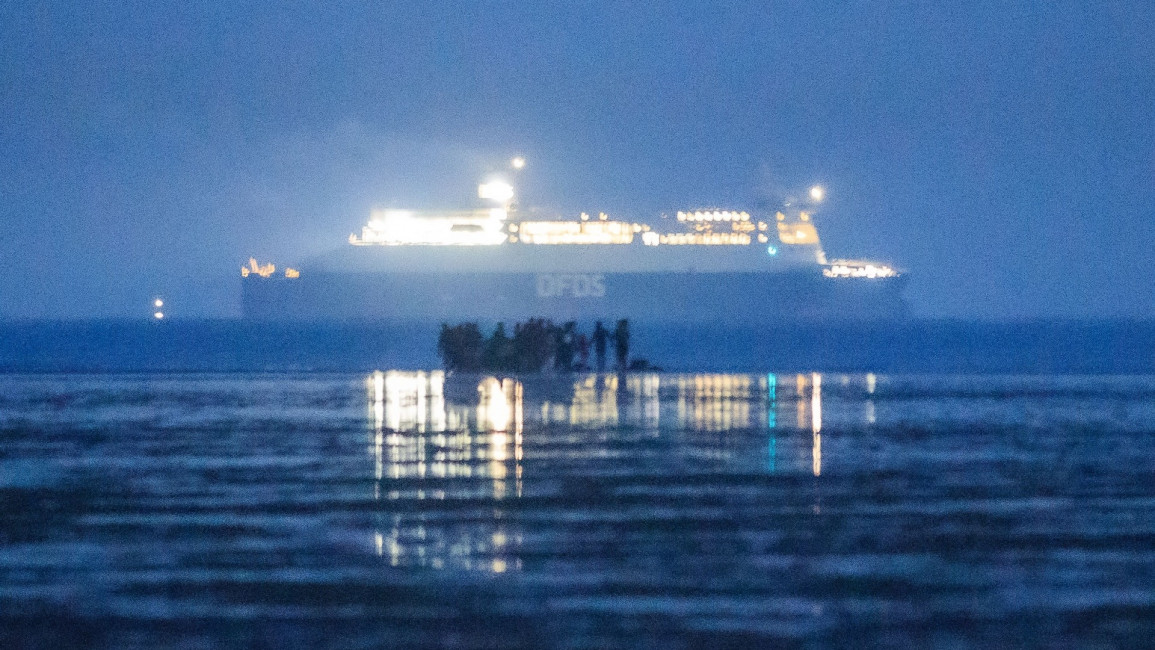EU watchdog launches Frontex investigation over migrant harassment allegations
EU watchdog launches Frontex investigation over migrant harassment allegations
The EU has launched an investigation into claims that Greece is pushing migrants on boats back into the sea.
3 min read
Migrants including families embark on the beach of Gravelines [Getty]
The European Union is investigating its border agency after allegations of harassment of refugees and misconduct in preventing migrants from entering Europe, according to media reports.
The European Anti-Fraud Office (OLAF) launched a probe into the European Border and Coast Guard Agency, Frontex, as hundreds of migrants were pushed back from Greece to Turkish territorial waters.
"OLAF can confirm that it has opened an investigation concerning Frontex," the anti-fraud agency's press office said as reported by news website Politico.
"The fact that OLAF is conducting an investigation does not mean that the persons/entities involved have committed an irregularity/fraud."
In a statement, Frontex said it "is cooperating fully with OLAF".
"OLAF visits to EU agencies, institutions and entities are a normal practice of good governance... it's important to note that such visits do not necessarily imply any malpractice. They may also be triggered by the management of European bodies themselves," the border guard agency wrote.
The investigation has been ongoing since the end of last year, when EU lawmakers accused Frontex of helping to illegally prevent migrants from entering Europe.
Frontex was said to have pushed migrants back towards Turkey, with the assistance of the Greek coastguard.
Lawmakers called for the resignation of Frontex Executive Director Fabrice Leggeri in October, when video and public data suggested Frontex "assets were actively involved in one pushback incident at the Greek-Turkish maritime border in the Aegean Sea".
Afghan migrants who reached the Greek island of Lesbos said at the time that Athens had rounded them up, mistreated them, before loading them onto life rafts and pushing them out to sea towards Turkey.
|
Associated Press journalists on a Turkish government-organised coast guard ride-along were aboard the patrol vessel that picked up the 37 migrants, including 18 children, from two orange life rafts in the Aegean Sea on 12 September.
Two other media organisations on similar government-organised trips in the same week witnessed similar scenes.
"They took our phones and said a bus will come and take you to the camp," Omid Hussain Nabizada said in Turkish at the time.
"But they took us and put us on a ship. They left us on the water in a very bad way on these boats."
Turkey, which hosts about 4 million refugees, accused Greece of large-scale pushbacks - summary deportations without access to asylum procedures, in violation of international law. It also accused the European Union of turning a blind eye to what it says is a blatant abuse of human rights.
The Turkish coast guard said it rescued over 300 migrants "pushed back by Greek elements to Turkish waters" in one month alone. Citing what they say are credible reports, international rights groups have called repeatedly for investigations.
Human Rights Watch has accused Greece of summarily returning migrants across land and sea borders with Turkey, citing interviews with asylum-seekers.
Other rights groups and refugee organisations, including the UN refugee agency, have repeatedly called on Greece to investigate what they say are credible reports and testimony of such expulsions occurring.
"UNHCR is particularly concerned about the increasing reports, since March 2020, of alleged informal returns by sea of persons who, according to their own attestations or those of third persons, have disembarked on Greek shores and have thereafter been towed back to sea," the agency said in August.


![Morocco Israel [Getty] Morocco Israel [Getty]](/sites/default/files/styles/image_330x185/public/media/images/AE22E2B5-5046-42CE-AA20-F9869E5A1E9B.jpg?h=d1cb525d&itok=9YeA_Yk1)
